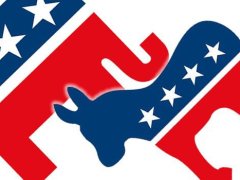If the human population had grown in Paradise, would private property have arisen naturally in Paradise too? Aquinas says, “No.”
[This post continues my discussion of why Aquinas holds there was no private property in Paradise. Other topics in the series include in order: 1. No property in Paradise, 2. Life in Paradise, 3. No Labor in Paradise, 4. Sexuality and Procreation in Paradise, 5. The Children of Adam and Eve, 6. Were Adam and Eve Vegetarians? 7. No Equality in Paradise, 8. Subjection and Government in Paradise 9. Private Property, the Result of Sin, 10. Aquinas’s Analogy: Clothing, Slavery and Private Property. Or download the full essay here: No Property in Paradise: How Aquinas Understands the Origin of Private Property]
We can conclude that the need for private property does not arise simply because of population growth alone, since a large population in Paradise would not have brought forth private property all by itself. Something besides population growth, then, must account for this transition from a property-less Paradise to a post-Paradise world in which private property becomes a special human competence.[1]See my earlier discussion of private property in a post-Paradise world Is it the competition for resources after Paradise, and the need to labor for sustenance, that gives rise to private property or is it something about the changing nature of the human being as well?
Aquinas has this very question in mind, when he discusses whether there would have been sex or reproduction in Paradise. As we recall, Aquinas comes down squarely on the side of those who argue that sexual relations and reproduction would have happened in the state of innocence, had Adam and Eve not sinned.[2]See my earlier discussion. But in arguing for that position, he responds to a fascinating objection that links the development of private property to human population growth in Paradise. Here is the objection:
Objection 3: Further, by generation man is multiplied. But the multiplication of masters requires the division of property, to avoid confusion of mastership. Therefore, since man was made master of the animals, it would have been necessary to make a division of rights when the human race increased by generation. This is against the natural law, according to which all things are in common, as Isidore says (Etym. v, 4).[3]ST Ia, 98, i
Aquinas develops his objection from the starting assumption that all things are shared in common according to the natural law, a view that he cites here in the name St. Isidore of Seville (b.560-d.636). St. Isidore was Archbishop of Seville for more than three decades and wrote a compendium of received knowledge from antiquity called Etymologies. In it, Isidore says that everything is common according to natural law, a view that Aquinas receives from others as well.[4]Some basic background on St. Isidore can be found here. Aquinas cites Isidore several times on matters related to the nature of natural law. Aquinas also cites Isidore as the authority for this same … Continue reading
Population growth implies private property, right?
Let’s now follow the logic of the objection that Aquinas poses: If there was reproduction in Paradise, the human population would have grown, resulting in a need for private property. But this can’t be so, because it is accepted that things are shared in common according to the natural law. Therefore, one could conclude that Adam and Eve could not have reproduced in Paradise.
Aquinas ultimately rejects this conclusion. He reasons there would have been sexual relations and children in Paradise, had Adam and Eve not sinned. Because he holds this view, he must, therefore, explain why an expanded population in Paradise would not have produced private property. His answer is that human nature differed in Paradise from the nature of human beings after their sin. Here is his reply.
Reply to Objection 3: In our present state a division of possessions is necessary on account of the multiplicity of masters, inasmuch as community of possession is a source of strife, as the Philosopher says (Politic. ii, 5). In the state of innocence, however, the will of men would have been so ordered that without any danger of strife they would have used in common, according to each one’s need, those things of which they were masters—a state of things to be observed even now among many good men.[5]Ia, 98, i, ad. 3
The reason private property arises after Paradise, says Aquinas, is that human beings fundamentally changed in nature as a result of sin. And it is this change in human nature that leads to the need for private property, not simply the increase in human population. What change is he talking about? From previous discussions, we know the answer: in Paradise, reason was master of the sensible appetites. But after sin the body becomes unruly, leading to shame over nakedness, the need for clothing and, as we now see here, private property.
In Paradise, then, human beings would not have fought over the natural resources, even if the population expanded. Their wills were “so ordered” that they could have managed sharing things in common, according to each individual’s needs. After sin and the unruliness of the body against reason, however, wills are not ordered in this way in the majority of individuals and therefore the idea and practices of private property become the mechanism that replace the order that was achievable by reason controlling the will. Human law and government now play part of the role that earlier had been reserved for individual reason.
Private Property Arises From Sin
Based on this position, it is hard to conclude that private property is straightforwardly a good and natural thing, without qualification. To be sure, Aquinas has many good things to say about the benefits of private property in his discussion of theft and robbery.[6]See my discussion of Aquinas’s positive views of property here But we must see those positive statements in context. They speak of private property’s benefits to human beings like us who live outside of Paradise and after the Fall. These human beings must labor for their sustenance. They are aware of their nakedness and wear clothes to hide their unruly bodies. And they need human law to order their wills since their desires no longer leave them satisfied only with what they need.
Aquinas does not explicitly say here that “greed” leads to private property, the way some of the earlier fathers such as St. Ambrose previously did. [7]See the three objections that Aquinas considers and in particular my discussion of St. Ambrose’s position. See a survey of the negative views of wealth and property prior to Aquinas in Anton … Continue reading Still, he clearly sees private property as an accommodation to the state of human beings after the first parents’ sins. Private property is needed to prevent strife that arises when human beings take more than they need or take from each other. Theft and robbery thus emerge as sins once private property has come into being. In Paradise, where there was no private property, nor need for it, the sin of theft and robbery could not exist. Private property is thus a human institution that develops, and one that is good for human beings, given their condition after the Fall and the nature of their disordered wills.
While private property emerges after Paradise, the value of possessing some things in common does not go away completely , as we shall now see.
On the Common and Private After Paradise
Aquinas acknowledges that some humans today are able to manage resources in common, or as he puts it , “a state of things to be observed even now among many good men.” We know that Aquinas has in mind in particular the religious communities of his day for he discusses common property again several times in that context when speaking about religious orders. He thus sees an implicit analogy between the communal nature of property in the religious orders and the state of common things in Paradise. About the difference of private and communal property in this context, he says, “For the care that one takes of one’s own wealth, pertains to love of self, whereby a man loves himself in temporal matters; whereas the care that is given to things held in common pertains to the love of charity which ‘seeketh not her own,’ but looks to the common good. And since religion is directed to the perfection of charity, and charity is perfected in ‘the love of God extending to contempt of self’ [Augustine, De Civ. Dei xiv, 28], it is contrary to religious perfection to possess anything in private.”[8]ST II-II, 188, vii
As we see here, private property in Aquinas’s view is intrinsically related to self-love, whereas communal property has at least the potential to be for the common good. One can tell that Aquinas is also responding to critics who suggest that communal wealth of the religious orders is antithetical to a life of God and poverty. He acknowledges that this danger can arise: “But the care that is given to common goods may pertain to charity, although it may prove an obstacle to some higher act of charity, such as divine contemplation or the instructing of one’s neighbor. Hence it is evident that to have excessive riches in common, whether in movable or in immovable property, is an obstacle to perfection, though not absolutely incompatible with it…”[9]ST II-II, 188, vii
While it is arguable that religious orders have a special relationship to things in common, Aquinas follows Aristotle in thinking that some sorts of common property are recommended. When writing about the Old Testament laws and their purpose, for example, he notes that God not only instructed the Israelites to divvy up the land equally into private property, but also to make provision for some things in common:
Secondly, the [Old Testament] Law commanded that, in some respects, the use of things should belong to all in common. Firstly, as regards the care of them; for it was prescribed (Dt. 22:1-4): “Thou shalt not pass by, if thou seest thy brother’s ox or his sheep go astray; but thou shalt bring them back to thy brother,” and in like manner as to other things. Secondly, as regards fruits. For all alike were allowed on entering a friend’s vineyard to eat of the fruit, but not to take any away. And, specially, with respect to the poor, it was prescribed that the forgotten sheaves, and the bunches of grapes and fruit, should be left behind for them (Lev. 19:9; Dt. 24:19). Moreover, whatever grew in the seventh year was common property, as stated in Ex. 23:11 and Lev. 25:4. 3935.[10]ST I-II, 105, ii
Having now shown that private property is understood to be the consequence of sin and corresponding changes in human nature, we can now turn our attention back to the question of why private property is not thought to be a perversion of natural law.
Next up: Clothing, Slavery and Private Property
References
| ↑1 | See my earlier discussion of private property in a post-Paradise world |
|---|---|
| ↑2 | See my earlier discussion. |
| ↑3 | ST Ia, 98, i |
| ↑4 | Some basic background on St. Isidore can be found here. Aquinas cites Isidore several times on matters related to the nature of natural law. Aquinas also cites Isidore as the authority for this same view that all things are common in another passage we shall consider below. We have also seen Aquinas quote the same view of the common nature of things anonymously at the start of his discussion of private property in his discussion of theft and robbery, and Aquinas also assumes that this assumption is present in the thinking of St. Basil’s thinking in Objection Two as well. Here is the full quotation of the passage from St. Isidore for convenience: “What natural law is (Quid sit ius naturale) 1. Law is either natural, or civil, or of nations. Natural law (ius naturale) is common to all nations, and, because it exists everywhere by the instinct of nature, it is not kept by any regulation. Such is the union of a man and woman, the children’s inheritance and education, the common possession of everything, a single freedom for all, and the right to acquire whatever is taken from the sky, the earth, and the sea.” See The Etymologies of Isidore of Seville. Trans. Stephen A. Barney, W.J. Lewis, et. al. Vol. 4. Cambridge: Cambridge University, 2006, 117. |
| ↑5 | Ia, 98, i, ad. 3 |
| ↑6 | See my discussion of Aquinas’s positive views of property here |
| ↑7 | See the three objections that Aquinas considers and in particular my discussion of St. Ambrose’s position. See a survey of the negative views of wealth and property prior to Aquinas in Anton Hermann Chroust and Robert J. Affeldt, “The Problem of Private Property According to St. Thomas Aquinas.” In Marquette Law Review. 34:3 (Winter) 1950-51, 151-182. |
| ↑8, ↑9 | ST II-II, 188, vii |
| ↑10 | ST I-II, 105, ii |




